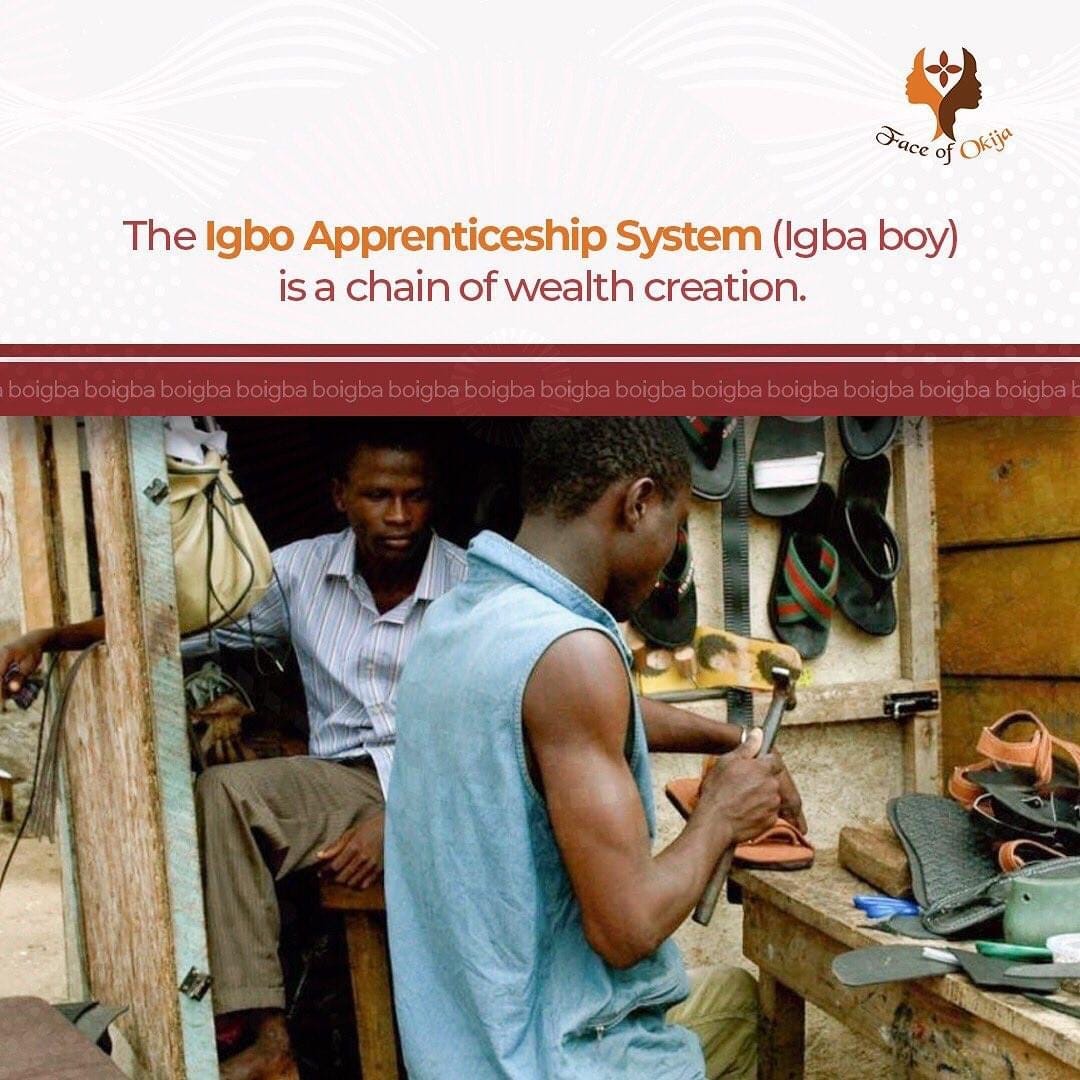Education: Africa's Answer? Pt. 2
It Is Not Enough To Acquire Wisdom, It Is Necessary To Employ It - Marcus Tullius Cicero
In this second installment, we shift our focus from critical analysis to actionable solutions and innovative strategies. Building upon the historical context and challenges outlined in Part 1, we explore how education can catalyze economic growth and societal transformation in Africa. Here, we delve into the potential of Technical and Vocational Education and Training (TVET), the power of informal sector skills development, and the crucial link between education and financial empowerment. Join us as we chart a course toward an educational renaissance, redefining the role of learning in driving Africa's prosperity.
Economic Development and Education:
Educated populations tend to drive economic growth, a trend observed across the globe. However, the nature of education—whether skill-based or knowledge-based—plays a pivotal role in shaping economic outcomes.
Consider the United States as an example. The U.S. exemplifies a dynamic shift from an industrial economy where practical skills were paramount to a knowledge-based economy prioritizing higher education and intellectual prowess, emphasizing both practical skills and academic knowledge. Skill-based education focuses on practical skills for societal contribution, while knowledge-based education emphasizes intellectual development. Industrialization hosted an era of mass working for the rich in factories (including children), and school wasn’t a mainstay in society. Education was reserved for the elite (as it is in Africa today). As the country evolved, significant societal and labour law changes occurred, transitioning children from factories to classrooms and focusing more on a combination of practical skills and academic knowledge. If you looked at the curriculum back then, it wasn't solely focused on knowledge; it included practical classes like home economics, carpentry, and plumbing.
After the atomic bombs were dropped on Hiroshima and Nagasaki, Japan, once a leading Asian superpower, had to rebuild. Lacking abundant natural resources, Japan invested in its most significant asset: its people. By focusing on skill-based education and leveraging their strong culture and work ethic, Japan has become a global economic power, now boasting the world's third-largest economy by GDP.
In both these cases, the transition to a knowledge-based economy was underpinned by a skilled workforce. The United States and Japan exemplify how a balanced approach to skill and knowledge in education is crucial for economic growth and development. This balance has been instrumental in sustaining populations, inspiring innovation, and fostering enterprise. In essence, while the Western world transitioned to knowledge-based education, it was the skilled workforce that laid the societal foundation, ensuring a segment of the population always possessed the skills necessary for societal upkeep and the knowledge from formal education to drive innovation and enterprise. Skill-based education, focusing on developing practical competencies, played a crucial role in this transformation.
The experiences of the United States and Japan show how a balance between skill-based and knowledge-based education can drive economic growth. In Africa, this balance is crucial in addressing the unique socio-economic challenges. For instance, like Japan post-World War II, many African countries are in a rebuilding phase, where investment in technical education could be a cornerstone for economic revival and technological advancement. Similarly, the shift in the U.S. from an industrial to a knowledge-based economy mirrors the transition many African nations undergo, emphasizing the need for diverse educational systems catering to industrial and emerging digital economies.
Balancing Traditional Knowledge And Global Relevance
In exploring educational paradigms, we contrast the inherently localized Traditional African Education with the often theoretical Modern Western Education. This comparison illuminates each system's unique characteristics and implications for contemporary African society.
Traditional African education was deeply rooted in the confines of the community, significantly influenced by each society's physical, social, and spiritual context. For instance, in a society situated by a river, education would be centred around understanding the river ecosystem, with skills developed in fishing, net making, and boat building. However, this localized focus meant that individuals educated within one locale might be unprepared for external environments or challenges.
Despite its limitations in scope, Traditional African Education was rich in practical life skills and community involvement. For example, a person adept at riverine living would possess intricate knowledge about various types of sea animal and plant life, how to derive benefits from them, and awareness of potential dangers. This education system was predominantly oral, with minimal emphasis on literacy, relying mainly on spoken word for knowledge dissemination.
An exception was Islamic educational institutions like Timbuktu's Sonkore University, globally renowned for teaching reading, writing, and arithmetic in Arabic - one of the continent's most widely spoken languages. These institutions symbolized a more formalized education within the African context.
Conversely, Modern Western Education is characterized by its theoretical focus, often prioritizing academic knowledge over practical skills, contrasting sharply with the traditional African approach. Western education's broad scope sometimes neglects the practical skills and community-centric learning central to traditional African methods, inadequately addressing agricultural, health, and sociocultural issues in Africa's rural areas (where most Africans reside). Transforming education in Africa necessitates a redesign to make it more relevant and responsive, as echoed in the African Union youth-led manifesto on education.
However, the strengths of Modern Western Education in fostering critical thinking and innovation cannot be overlooked. Its inquiry-based learning approach stimulates critical and analytical thinking. The diverse curriculum exposes students to a wide range of subjects, nurturing innovative connections across disciplines. Higher education's emphasis on research encourages exploration and knowledge creation, which is vital for innovation. The integration of technology in education not only makes students tech-savvy but also inspires solutions to real-world problems.
Furthermore, the global perspectives offered in Western education are crucial in today’s interconnected world. Collaborative learning environments in this system enhance teamwork and idea exchange, key elements for innovative thinking. These aspects of Modern Western Education are essential in cultivating a generation capable of creative problem-solving and adapting to the ever-changing global landscape. Integrating traditional methods with modern technological and scientific advancements is vital for enhancing education's relevance in today's Africa. A holistic educational system for contemporary Africa should incorporate indigenous knowledge, practical skills, and global and technological insights, preparing students for local and global challenges and fostering innovation and critical thinking. This balanced approach promises to prepare African students for the challenges of a globalized world while staying deeply rooted in their local contexts and cultures.
Practical Skills for African Education
In reimagining Africa's educational landscape, it's imperative to prioritize Technical and Vocational Education and Training (TVET) in sectors that are both accessible and pivotal for economic growth. Here are some key areas:
Agriculture: Essential for the continent's largely agrarian economies, TVET in agriculture could include training in modern farming techniques, sustainable practices, food processing, and agribusiness management.
Renewable Energy Technologies: With Africa's vast potential for renewable energy, training in solar, wind, and hydropower technologies is crucial, especially in off-grid areas.
Construction and Infrastructure Development: Skills in construction, plumbing, electrical work, and carpentry are key to supporting urbanization and infrastructure projects.
Information and Communication Technology: Basic to intermediate ICT skills, such as computer literacy, basic coding, and digital marketing, are critical in an increasingly digital world.
Health is Wealth: Training community health workers, nurses, and midwives, particularly in rural areas, can significantly improve health outcomes.
Mining: In regions where mining is significant, training in safe mining practices and mineral processing can be beneficial.
Hospitality and Tourism: Skills in hospitality management, culinary arts, and tour guiding can leverage Africa's rich cultural and natural heritage for the growing tourism sector.
Entrepreneurship: Entrepreneurial skills, including basic accounting and marketing, are vital for promoting self-employment and small business growth.
Art and Craftsmanship: Programs in local arts and crafts can help preserve cultural heritage and create market opportunities for African products. (Consumers should buy their furniture and goods from African craftsmen)
Logistics and Transportation: As intra-African trade expands, skills in vehicle maintenance, logistics, and supply chain management will become increasingly important.
These areas align with the economic realities of many African nations, offering practical and immediate benefits for individuals and communities. TVET can provide a robust alternative to traditional academic education by focusing on these hands-on skills, opening up new paths for youth employment and entrepreneurship.
The Role Of STEM
In today's rapidly evolving global economy, prioritizing STEM (Science, Technology, Engineering, and Mathematics) skills is crucial for youth and economic prosperity in Africa. However, the continent faces challenges in STEM education, such as low participation rates, inadequate infrastructure, and resource constraints. For example, many secondary schools in Africa lack access to electricity and appropriate science labs, which hampers effective STEM learning. Despite these challenges, STEM education is vital for tackling youth unemployment and preparing the workforce to address developmental challenges like climate change, food insecurity, and inequality.
Programs like the African Girls Can Code Initiative (AGCCI) initiative, aim to bridge the gender gap in STEM. These labs offer young African girls coding lessons and a chance to innovate for their communities. This blend of mentorship, hands-on STEM education, and societal problem-solving prepares young women to become leaders in technology and agents of change in Africa.
Young Africans equipped with STEM skills will be better positioned to drive economic transformation and navigate the future job market, where technological advances will continue to reshape industries.
The Informal Sector
Furthermore, developing informal sector skills plays a crucial role in Africa. According to the African Development Bank, the informal sector contributes about 55% of Sub-Saharan Africa’s GDP and 80% of the labour force. Most workers in micro and small enterprises learn their trade on the job in the informal sector. Informal sector training is more flexible and culturally friendly, often using local languages and addressing the specific training needs of out-of-school youth, early school leavers, and adults. This type of training is vital for equipping a large portion of the workforce with technical and entrepreneurial skills.
An illustrative example of informal sector skills development in Africa can be seen in the artisanal tailoring industry. In many African countries, aspiring tailors often start as apprentices in small, local tailor shops rather than attending formal vocational schools. These apprenticeships are more accessible to out-of-school youth or those who have left school early and want to learn a trade.
African TVET Example: Igba Boy
In this setup, the apprentice learns directly from an experienced tailor, acquiring practical skills in garment making, fabric selection, and customer service. This learning process is hands-on and deeply embedded in the local context, often using local languages and methods tailored to the specific demands of the community. As apprentices gain experience, they learn the technical aspects of tailoring and gain insights into running a small business, including managing finances, understanding customer needs, and marketing their services.
This form of training is particularly effective because it is flexible, adapts to the apprentice's learning pace, and is directly linked to the realities of the local market. Furthermore, it supports the transmission of cultural practices and styles in clothing, which are often unique to specific regions or communities.
After their apprenticeship, these tailors can start their own businesses or continue working in established shops, contributing to the local economy and preserving traditional craftsmanship. This skills development model demonstrates how the informal sector can play a crucial role in skill acquisition and economic empowerment in Africa, especially in areas where formal vocational training is not readily available or accessible.
Bridging Education and Financial Empowerment in Africa
Reimagining education in Africa is essential for catalyzing financial independence and economic development, central themes of Diaspora Dollars. Transforming the educational system to focus on practical skills and entrepreneurship aligns with financial freedom and empowerment aspirations. This reform is about more than improving academic standards; it's about creating a resilient, skilled workforce to drive Africa's economic growth and investments. Integrating education with financial independence is a key mission of Diaspora Dollars, emphasizing practical skills and entrepreneurship to stimulate economic growth and investment opportunities.
The African diaspora plays a vital role in this transformation. With their global experiences and resources, they can contribute significantly to educational reforms through financial investments and policy-making participation. This engagement aids the continent's development and fosters connections with their heritage.
Addressing the skills gap through education is crucial for achieving financial independence in Africa. By providing youth with practical skills, education can translate into employment and entrepreneurship, reducing unemployment and underemployment.
The Path Forward
The future of education in Africa shouldn't solely focus on STEM or TVET, nor should it overly emphasize academic achievements as the sole path to success. In an age of globalization and internet access, education beyond basic literacy can take various forms. Emulating our ancestors, we should value skills that benefit society, which today can be acquired formally or through self-learning and innovation.
Reflecting on traditional African education versus modern Western models reveals crucial differences. Traditional African education, rooted in community values and practical skills, was designed for societal development and individual prosperity within local contexts, blending vocational, social, and ethical education. In contrast, modern Western education, focusing on theoretical knowledge and individual success in a global job market, may lack community-oriented skills and local relevance.
A balanced approach is needed for Africa's educational future. This balance should respect traditional African education's focus on practical, community-centric learning and the Western model's emphasis on innovation and global connectivity. Such a holistic system equips individuals for personal success and communal responsibility, addressing unemployment and skill mismatch while laying a foundation for sustainable societal development.








Great post Malik! It’s incredibly valuable work you’re doing and I always look forward to reading your pieces. Especially when it’s topics as vital as education, that has countless secondary and tertiary order effects that aren’t considered enough as development strategies.
Hey Dylan. Really appreciate it. And ditto for your posts! I hope I was able to bring a fresh perspective on this topic